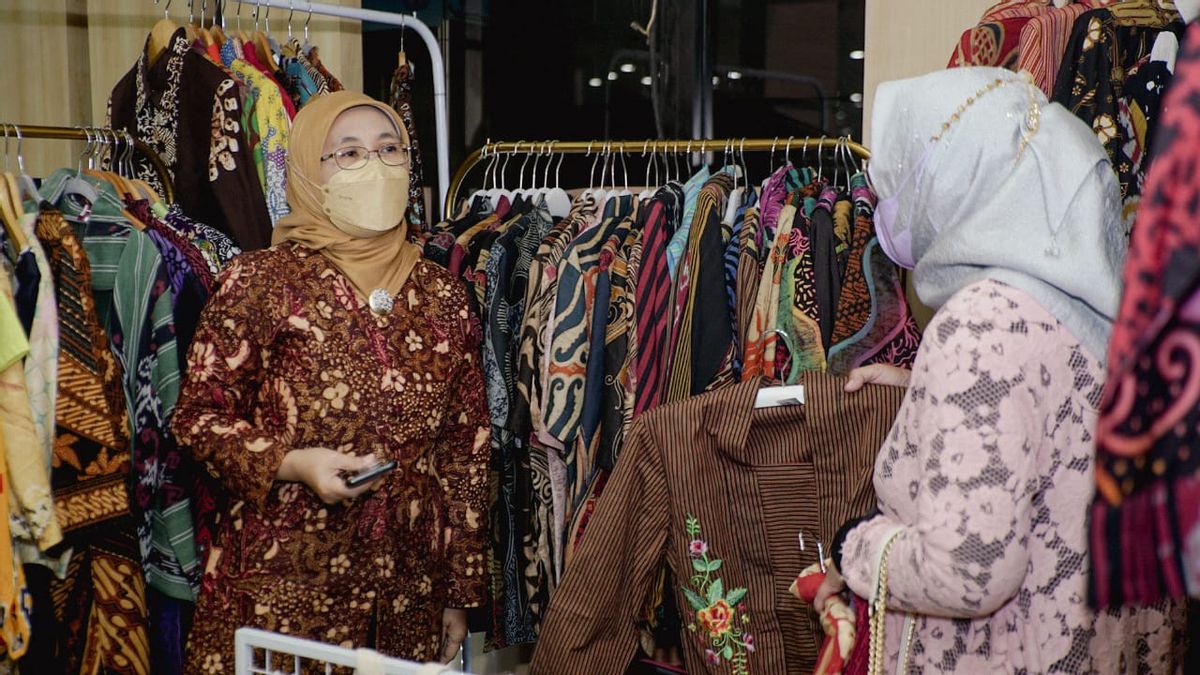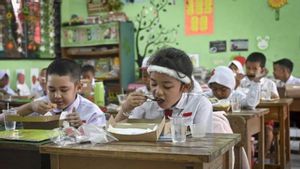JAKARTA - The Ministry of Industry (Kemenperin) continues to support the development of the handicraft industry as one of the sectors that has the potential to grow and become a commodity that has high economic value.
The handicraft industry, especially from small and medium industry players (IKM), is known to have an advantage over the hand skills of its craftsmen with artistic and beauty values that are inseparable from Indonesian culture.
The Directorate General of Small, Medium and Multifarious Industries (Ditjen IKMA) of the Ministry of Industry continues to strive to develop the potential of the handicraft industry through programs to improve human resource competence and capacity, product quality development, intellectual property certification, machine/equipment facilitation, and provision of promotional access and exhibition facilitation.
The entire handicraft IKM development program is carried out to increase the competitiveness and capacity of IKM actors.
"For a long time, craftsmen (Indonesia) have been exploring, developing, and preserving cultural heritage in their various patterns and characteristics. The diversity of the handicraft industry in the country is very potential to be increased to commodities that have economic value," said the Director General of Small, Medium and Multifarious Industries (IKMA) of the Ministry of Industry, Reni Yanita in Jakarta, Wednesday, November 9.
This is reflected in the export performance of Indonesian crafts in January-September 2022 which reached USD 725.54 million (IDR 10.6 trillion), up 6.94 percent compared to the same period the previous year, which was USD 678.42 million.
One of the efforts made by the Ministry of Industry to boost the performance of the handicraft industry sector is through collaboration between parties in efforts to develop and promote the potential of Indonesian handicraft products.
"Therefore, we are aggressively collaborating with all stakeholders, such as associations of business actors, designers, academics, marketplaces, and influencers to jointly echo the quality of domestic handicraft products," said Reni.
Reni said that his party also collaborated with local governments to always explore the potential of local products' advantages, as well as encourage the ability of local industry players to be more competitive.
"One of the efforts that has been made is by facilitating craftsmen in the regions to be able to show off at the Ministry of Industry's office so as to open up opportunities for craftsmen to re-exist post-pandemic," he said.
Reni also invites people to continue to buy and use domestically made products, especially made by IKM. Because, so far, many Indonesian-made products have also proven to be popular with the national to global market.
"We all have to knit a sense of optimism that national handicraft products can compete both domestically and internationally. We must be proud of domestically made products," he concluded.
The English, Chinese, Japanese, Arabic, and French versions are automatically generated by the AI. So there may still be inaccuracies in translating, please always see Indonesian as our main language. (system supported by DigitalSiber.id)













